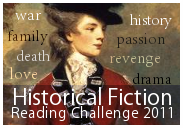[amazon_image id=”0345521307″ link=”true” target=”_blank” size=”medium” class=”alignleft”]The Paris Wife: A Novel[/amazon_image]Hadley Richardson Hemingway is perhaps best known as the first of Ernest Hemingway’s four wives. [amazon_link id=”0345521307″ target=”_blank” ]The Paris Wife[/amazon_link] is the story of how the Hemingways met, married, and lived in Paris as Hemingway’s writing career was beginning. During this time, Hemingway writes [amazon_link id=”0684822768″ target=”_blank” ]In Our Time[/amazon_link], [amazon_link id=”1907590250″ target=”_blank” ]The Sun Also Rises[/amazon_link], and [amazon_link id=”0684839075″ target=”_blank” ]The Torrents of Spring[/amazon_link]. They meet and befriend such Lost Generation writers as Gertrude Stein, Ezra Pound, F. Scott Fitzgerald, Ford Madox Ford, John Dos Passos, and other key figures of the Left Bank artistic renaissance of the 1920’s. The novel chronicles the infamous trip to Pamplona that inspired The Sun Also Rises as well as the couple’s trips to Austria and the disintegration of their marriage when Pauline Pfeiffer, who would become Hemingway’s second wife, enters the picture.
I haven’t read Hemingway’s memoir [amazon_link id=”143918271X” target=”_blank” ]A Moveable Feast[/amazon_link], so I can’t argue with reviewers who say that this novel is basically the same story from Hadley’s point of view, but somehow, I don’t think that’s all it is. I was swept into the story immediately, and whipped through the last 40% of it on my [amazon_link id=”B002Y27P3M” target=”_blank” ]Kindle[/amazon_link] last night. Hemingway and Hadley’s relationship intrigued me. McLain evokes the Hemingways’ Paris skillfully (and definitely made me want to go!). Fans of Hemingway’s work will meet all those who inspired his fiction in the pages of McLain’s novel, too. Hemingway said of Hadley in A Moveable Feast, “I wished I’d died before I ever loved any other woman but her.” Ultimately, the book is about their romance—and even years later, after Hemingway was on his fourth wife, and she was happily married to journalist Paul Mowrer, they still had something of their old feelings for each other. Some critics say Hemingway tended to idealize Hadley, particularly as he grew older. She had some spirit. She followed Hemingway and supported him as he fulfilled his dreams, but when it came time to put up with his infidelity, she drew the line.
I enjoyed meeting all of the characters, particularly Scott and Zelda Fitzgerald, Lady Duff Twysden (the inspiration for Lady Brett Ashley), and Hadley herself. I have been intrigued by Hadley ever since I was in college when I met a girl in my dorm who had been named after her—her parents were, I believe, English professors. What kind of woman, I wondered, would inspire Hemingway to marry her when she was eight years his senior and he was a young, good looking, up-and-coming writer? This book is a fantastic read with some gorgeous language in its own right and a fascinating glimpse into the Hemingways’ romance. I highly recommend it, especially to Hemingway or Modernist literature fans. A few favorite quotes:
No one seemed to have any hold on anyone, in fact. That was a sign of the times. We were all on the verge now, bursting with youth and promise and little trills of jazz. The year before, Olive Thomas had starred in The Flapper, and the word suddenly meant jazz and moved like it, too. Girls everywhere stepped out of their corsets and shortened their dresses and darkened their lips and eyes. We said “cat’s pajamas” and “I’ll say” and “that’s so jake.” Youth, in 1921, was everything, but that was just the thing that could worry me sick. I was twenty-nine, feeling almost obsolete, but Ernest was twenty-one and white hot with life. What was I thinking? (location 789)
And for the rest of the lunch our table was like an intricate game of emotional chess, with Duff looking at Ernest, who kept one eye on Pat, who was glaring at Harold, who was glancing furtively at Duff. Everyone was drinking too much and wrung out and working hard to pretend they were jollier and less affected than everyone else. (location 4092)
“Sometimes, I wish we could rub out all our mistakes and start fresh, from the beginning,” I said. “And sometimes I think there isn’t anything to us but our mistakes.” (location 4100)
“I’m always on your side,” I said, and wondered if I was the only one who felt the complicated truth of that hovering over us in the dark room. (location 4579)
McLain’s prose reminded just a bit of Hemingway’s—you can see the polysyndeton, for example, in the second passage, which is a scene that would be familiar to those who have read The Sun Also Rises. One thing the book made me want to do is run right out and read A Moveable Feast. The Paris Wife is a beautiful book.










